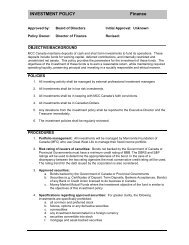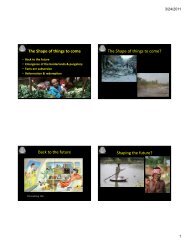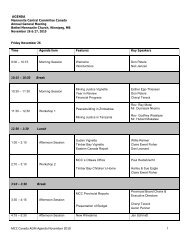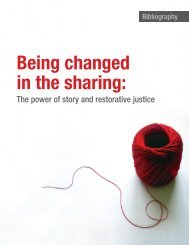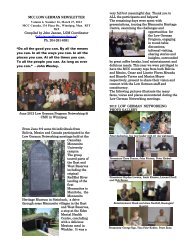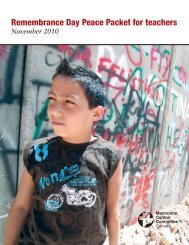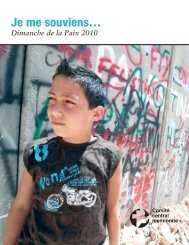Walking together: Healing and hope for Colombian refugees
Walking together: Healing and hope for Colombian refugees
Walking together: Healing and hope for Colombian refugees
Create successful ePaper yourself
Turn your PDF publications into a flip-book with our unique Google optimized e-Paper software.
86<br />
w a l k i n g<br />
t o g e t h e r<br />
LISTENING AND ACCOMPANIMENT<br />
It is important <strong>for</strong> the church refugee support group to plan <strong>for</strong> how they will listen to the family. Although<br />
the family may not want to talk about their story right away, they must know that there will always be<br />
someone available to listen to them, whenever they need to talk. The church refugee committee should<br />
be prepared to listen not only to their story from Colombia, but also be there to listen to the challenges,<br />
frustrations <strong>and</strong> disappointments that the family experiences as they adjust to life in Canada - <strong>and</strong> let<br />
them know that everything they are experiencing is normal.<br />
Sometimes when one hears the problems or pains of others, one wants to help fix them. That is not<br />
the purpose of this type of listening. The goal is to simply be present, consistent <strong>and</strong> open as you listen<br />
to the troubles of the refugee family, without trying to “fix” their pain or problems. It is only the refugee<br />
family themselves that can do the work of “fixing” <strong>and</strong> healing. Listening is an extremely important way<br />
in which the church can support the family in their personal work of healing.<br />
As you consider this topic, it may be helpful to refer back to the sections Talking about Trauma, What<br />
Survivors Want to Say to Clergy, <strong>and</strong> Underst<strong>and</strong>ing our Differences.<br />
Some questions to help guide your planning process:<br />
1. Who will be intentionally available to listen to the refugee family?<br />
2. How will you let the family know who is available, <strong>and</strong> that someone is willing to listen to<br />
them anytime <strong>and</strong> about anything?<br />
3. What kind of initiative will the “listener(s)” take to ensure the families are given<br />
opportunities to be listened to?<br />
4. Remember that speaking on the telephone is often one of the hardest things <strong>for</strong> a<br />
new language learner to do. In addition, phones may actually generate fear <strong>for</strong> some<br />
<strong>Colombian</strong> <strong>refugees</strong> at first, because of the many times they may have been threatened<br />
over the phone or because of fear of their conversations being tapped. Giving the<br />
refugee family your phone number <strong>and</strong> hoping they will call may not be an optimal<br />
strategy <strong>for</strong> finding out when they need to talk. (Touching base in person will be more<br />
effective.)<br />
5. How will you address issues of confidentiality, if the family tells you things that they <strong>hope</strong><br />
you won’t pass on?<br />
6. Will language barriers be an issue? If so, how will you resolve this? Where can you find<br />
appropriate interpreters? For example, in a casual setting such as supper with the family,<br />
it might be nice to have an acquaintance interpret. In a more <strong>for</strong>mal setting, such as<br />
a meeting with the refugee committee <strong>and</strong> the family, it would be important to use<br />
an experienced interpreter. Don’t <strong>for</strong>get to go over the Guidelines <strong>for</strong> Working with<br />
Interpreters in Appendix two if you use an “in house” interpreter.<br />
7. What kind of spaces will you use to listen to the family? In their home? At the church? In<br />
church member’s homes?



